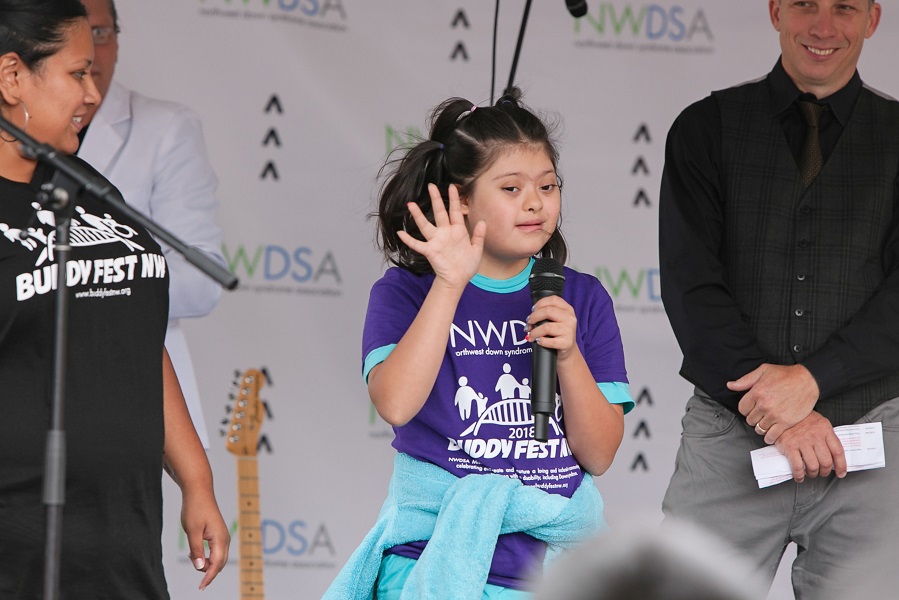Note: October is Down Syndrome Awareness Month

Ruby stands on stage with a microphone waving to the crowd during NW Buddy Fest 2018
By Maria Rangel, Ruby’s mother
My daughter Ruby and I share a love for taking pictures on our phones and capturing memories. We have hundreds of photos of things we did this summer.
One morning as she was getting ready to go to her first day of eighth grade, she asked me to print some pictures on her phone, I said “no, later when you come back from school.”
She then insisted.
“Now for school. Share,” she said.
“Oh, you want to print pictures and share what you did in the summer?” I asked her.
“Yes,” she said with a big smile.
We sent the pictures to my email, I helped her open a Word document to cut and paste the pictures and printed the document.
On the drive to school I could not help but cry tears of joy, because not only did she pre-plan for sharing with her teaches and friends, she also requested support even after I said no. She didn’t give up and continued to advocate for what she wanted.
Being at the Northwest Down Syndrome Association (NWDSA) and ABI has allowed Ruby and me the opportunity for growth in ways I would have not imagined. It takes someone to believe you can do it even when you think you can’t, and we have had a few of those experiences through our NWDSA/ABI family.
Coming to NWDSA/ABI, a group with such clear values around inclusion, I was nervous and felt like I might not belong. I am Hispanic, and my family is bilingual.
I work on the Office of Special Education Programs (OSEP) Breaking Barriers grant to support Hispanic families accessing supports and all of our programs. Being around everyone and the work has made me rethink the whole meaning of inclusion and how vital it is; it’s not all or nothing, and it doesn’t only mean inclusion in school.
Ruby experiences Down syndrome, uses a communication device and has a lot of sensory needs. It is important that she still be included.
We need zero judgement of families and to meet them where they are and encourage high expectations and increase their confidence and knowledge as advocates. We need to help support their next steps and empower them to reach their child’s dreams and maximize their inclusion.
Through my work with the Think College Coalition, I had a big a-ha! moment and started to see the possibility that anyone who wants to attend college should have the right to regardless of their needs. Ruby is 13 years old, and I see a vision and a path to a future for her that could include college.
We all have needs and deserve the chance to be lifelong learners.
My hopes and dreams for Ruby are that she will be in charge of her life, make her own choices, have dreams and be able to ask for support.
Blog articles provide insights on the activities of schools, programs, grantees, and other education stakeholders to promote continuing discussion of educational innovation and reform. Articles do not endorse any educational product, service, curriculum or pedagogy.

Thank you for sharing such an inspiring story!